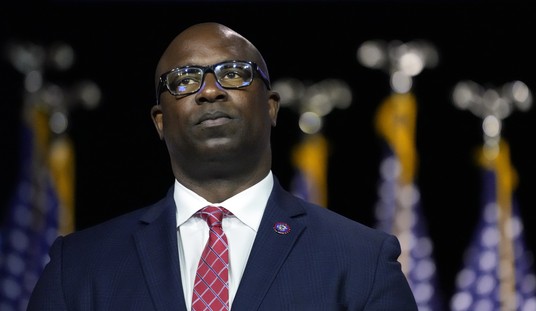Yesterday, I wrote about the claims from Thomas E. Mann and Norman J. Ornstein that the GOP is ideologically extreme and scornful of compromise, noting that the Democrats are similarly afflicted with the problems they identified. However, we need not simply analyze their claims on the basis of what is wrong with both parties. We can also look at the affirmative record of the parties.
One of the biggest and most fundamental tasks of the federal government today is developing a budget. There is consensus on this point. Obama’s budget director has warned that our exploding public debt is “serious and ultimately unsustainable.”
Republicans have proposed a budget (largely the work of Rep. Paul Ryan) to address the debt bomb, and have taken considerable political flak for it, which will only increase in the general election campaign.
The Obama administration’s position?
Treasury Secretary Timothy Geithner, speaking on behalf of the Obama White House, to Rep. Paul Ryan: “You are right to say we’re not coming before you today to say ‘we have a definitive solution to that long term problem.’ What we do know is, we don’t like yours.”
In the House of Representatives, Pres. Obama’s non-solution budget was unanimously defeated, 414-0. The House Democrats’ budget, which relies on massive tax increases and gutting defense spending, while doing nothing about runaway entitlement spending, nevertheless fares only marginally better in reducing the debt/GDP ratio than Obama’s non-solution. Neither the Obama budget or the House Dems’ budget comes close to either the Ryan plans or the bipartisan plans floating around the Beltway.
Speaking of which, people like Ornstein and Mann presumably favor some old school, center-left Grand Bargain along the lines of the Bowles-Simpson Commission recommendations. Beltway establishmentarians pine for the days in which the GOP signed onto budget deals that hiked taxes in return for future spending cuts that never seem to materialize.
In the House, a version of the Bowles-Simpson plan attracted a grand total of 38 votes, suggesting House Republicans are not the only ones scornful of this Grand Bargain. In the Senate, Senate Majority Leader Harry Reid blocked Budget Committee Chairman Kent Conrad from taking a vote on a version of this plan, even in committee. Indeed, Senate Democrats, in violation of federal law, have failed to pass any budget for almost three years.
Democrats oppose the Republican budget approach for relying heavily on restraining government spending and avoiding massive tax increases. However, a study of fiscal consolidations in 21 countries of the Organization for Economic Cooperation and Development over 37 years concludes that failed attempts to close budget gaps relied 53% on tax increases and 47%, while successful consolidations averaged 85% spending cuts and 15% tax increases. Moreover, the International Monetary Fund would suggest spending cuts and tax cuts as a “Plan B” for overextended countries.
As for Republicans being ideologically extreme, consider the polling coming out of the GOP presidential primary campaign. Americans saw the ideology of the GOP candidates — including Michelle Bachmann and Rick Santorum — as closer to theirs than Barack Obama’s ideology. Even among so-called independents, only Bachmann scored as more extreme than Obama, who holds the record for the most polarizing first, second and third years in office since Gallup started measuring polarization. A majority of Americans (and independents) said Barack Obama’s political views are “too liberal,” a greater percentage than believed either of his main Republican challengers — Rick Santorum (38%) or Mitt Romney (33%) — is “too conservative.” A majority of Americans (and independents) disagreed with Obama on the issues most important to them, while only a plurality disagreed with either Romney or Santorum.
Today’s post is much shorter than yesterday’s, because if you reread Ornstein and Mann, you will find none of this real-world context in their op-ed. In order for them to condemn Republicans as “the problem,” they ignore the country’s biggest problems, save for a passing reference to our exploding public debt as, er, “fiscal pressures.” They ignore the Democrats’ gross irresponsibility and dereliction in meeting the basic duties of governance, similarly burying their heads in the sand. They ignore that the Democrats’ preferred approach to the debt — when forced to consider it — has tended to fail worldwide. They denounce the GOP as ideologically extreme, public opinion data to the contrary. No wonder they demand the media switch entirely to a propaganda machine for the Democratic Party. Their reality-based community is a Potemkin village.
–Karl
This post was promoted from GreenRoom to HotAir.com.
To see the comments on the original post, look here.








Join the conversation as a VIP Member